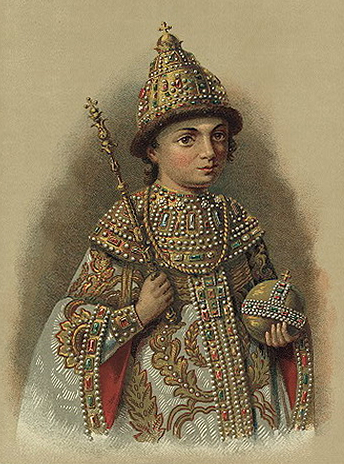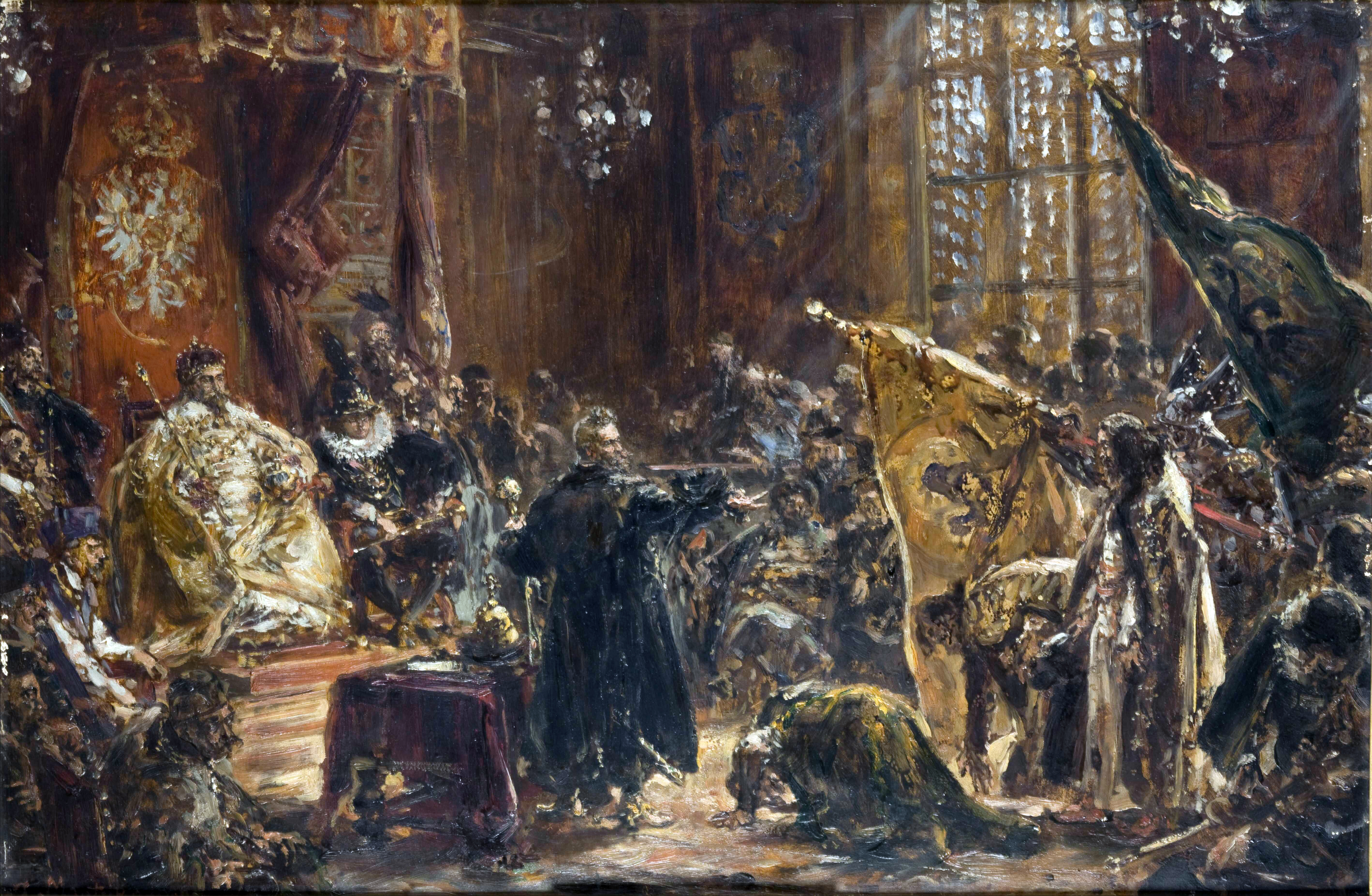|
Trubetsk
The Principality of Trubetsk (Russian: ''Трубецкое княжество'') was a small, landlocked Rus' principality in Eastern Europe. In the later Middle Ages it was bordered by the Grand Duchy of Lithuania to its west and by Muscovy to its east. The Principality of Trubetsk (Troubchevsk) was a principality within modern Bryansk Oblast, about 50 miles (80 kilometres) southwest of Bryansk. The Trubetsk (Troubchevsk) town was referred to in the Old East Slavic poem ''The Tale of Igor's Campaign'' where, among others, Vsevolod Svyatoslavich, the Prince of Trubetsk and of Kursk, was glorified. In 1185 the Trubetsk army fought against Cumans. In 1239, after the Mongol invasion of Rus, the Principality of Trubetsk passed to the Princes of Bryansk, and then to the Princes of Trubetsk. In 1566 Ivan IV the Terrible took the principality during the Livonian War. In 1609 Vasili IV of Russia relinquished it to the Polish–Lithuanian Commonwealth during the Polish–Muscovite W ... [...More Info...] [...Related Items...] OR: [Wikipedia] [Google] [Baidu] |
Aleksey Trubetskoy
Prince Aleksey Nikitich Trubetskoy (russian: Алексей Никитич Трубецкой; c. 17 March 1600 – 1680) was the last voivode of the Trubetskoy family and a diplomat who was active in negotiations with Poland and Sweden in 1647 and with the ambassadors of Bohdan Khmelnytsky in 1654. He was the godfather of Peter I of Russia. Under Tsar Michael's rule Aleksey Trubetskoy was in disfavour with the powerful Patriarch Filaret and was appointed to govern distant towns of Tobolsk and Astrakhan. But the situation changed after Michael's death in 1645 and Alexis I's succession to the throne, when Trubetskoy's close friend Boris Morozov became a head of government. In 1646, Trubetskoy was appointed a commander of the Tsar's personal Guard regiment. In 1654, Prince Aleksey Trubetskoy on the side of Alexis I of Russia led the southern flank of the Russian army from Bryansk to the Grand Duchy of Lithuania. The territory between the Dniepr and Berezyna rivers was overrun q ... [...More Info...] [...Related Items...] OR: [Wikipedia] [Google] [Baidu] |
Trubetsky
The House of Trubetskoy (English), Трубецкие (Russian), Трубяцкі ( Belarusian), ''Trubecki'' (Polish), ''Trubetsky'' ( Ruthenian), Трубецький (Ukrainian), ''Troubetzkoy'' (French), ''Trubic'' (Croatian), ''Trubetski'' (Estonian), ''Trubezkoi'' or ''Trubetzkoy'' (German), is a Russian gentry family of Ruthenian stock and Lithuanian origin, like many other princely houses of Grand Duchy of Lithuania, later prominent in Russian history, science, and arts. They are descended from Algirdas's son Demetrius I Starshy (1327 – 12 August 1399 (the Battle of the Vorskla River)). They used the Pogoń Litewska coat of arms and the Trubetsky coat of arms. Sovereign rule Princes Troubetzkoy descend from Demetrius I Starshy, one of Algirdas's sons, who ruled the towns of Bryansk and Starodub. He was killed together with his elder sons in the Battle of the Vorskla River (1399). Demetrius's descendants continued to rule the town of Trubetsk (Troubchevsk) until the 153 ... [...More Info...] [...Related Items...] OR: [Wikipedia] [Google] [Baidu] |
Trubchevsk
Trubchevsk (russian: Трубче́вск, pl, Trubczewsk) is a town and the administrative center of Trubchevsky District in Bryansk Oblast, Russia, located about south of the city of Bryansk, the administrative center of the oblast. Population: History An old Severian town, Trubchevsk was first mentioned as Trubetsk in East Slavic manuscripts describing the events of 1164 and 1183, although the locally 975 is regarded as the year of its foundation. At that early period, it was variously called Trubech (), Trubetsk (), Trubchesk (), or Trubezhsk (). The town is referred to in the great Old Russian poem, ''The Tale of Igor's Campaign''. This poem calls for the princes of the various Slavic lands to join forces in resisting the invasions of the nomadic Cuman people. The poem also glorified the courage of the army of Vsevolod Svyatoslavich, the ruler of Kursk and Trubchevsk. Originally a minor center of Severia, Trubchevsk had its own princes sporadically throughout the Mid ... [...More Info...] [...Related Items...] OR: [Wikipedia] [Google] [Baidu] |
Grand Duchy Of Moscow
The Grand Duchy of Moscow, Muscovite Russia, Muscovite Rus' or Grand Principality of Moscow (russian: Великое княжество Московское, Velikoye knyazhestvo Moskovskoye; also known in English simply as Muscovy from the Latin ) was a Rus' principality of the Late Middle Ages centered on Moscow, and the predecessor state of the Tsardom of Russia in the early modern period. It was ruled by the Rurik dynasty, who had ruled Rus' since the foundation of Novgorod in 862. Ivan III the Great titled himself as Sovereign and Grand Duke of All Rus' (russian: государь и великий князь всея Руси, gosudar' i velikiy knyaz' vseya Rusi). The state originated with the rule of Alexander Nevsky of the Rurik dynasty, when in 1263, his son, Daniel I, was appointed to rule the newly created Grand Principality of Moscow, which was a vassal state to the Mongol Empire (under the "Tatar Yoke"), and which eclipsed and eventually absorbed its parent duchy ... [...More Info...] [...Related Items...] OR: [Wikipedia] [Google] [Baidu] |
Livonian War
The Livonian War (1558–1583) was the Russian invasion of Old Livonia, and the prolonged series of military conflicts that followed, in which Tsar Ivan the Terrible of Russia (Muscovy) unsuccessfully fought for control of the region (present-day Estonia and Latvia). The Tsardom of Russia (Muscovy) faced a varying coalition of the Dano-Norwegian Realm, the Kingdom of Sweden, and the Union (later Commonwealth) of the Grand Duchy of Lithuania and the Kingdom of Poland. From 1558 to 1578, Russia controlled the greater part of the region with early military successes at Dorpat (Tartu) and Narwa (Narva). The dissolution of the Livonian Confederation brought Poland–Lithuania into the conflict, and Sweden and Denmark intervened between 1559 and 1561. Swedish Estonia was established despite continuing attacks from Russia, and Frederick II of Denmark bought the old Bishopric of Ösel–Wiek, which he placed under the control of his brother Magnus of Holstein. Magnus attemp ... [...More Info...] [...Related Items...] OR: [Wikipedia] [Google] [Baidu] |
Cumans
The Cumans (or Kumans), also known as Polovtsians or Polovtsy (plural only, from the Russian language, Russian Exonym and endonym, exonym ), were a Turkic people, Turkic nomadic people comprising the western branch of the Cuman–Kipchak confederation. After the Mongol invasion of Rus', Mongol invasion (1237), many sought Right of asylum, asylum in the Kingdom of Hungary, as many Cumans had settled in Hungary, the Second Bulgarian Empire playing an important role in the development of the state. Cumans played also an important role in (The Byzantine Empire, the Latin Empire, and the Empire of Nicaea, Nicaea Empire) Anatolia . Related to the Pecheneg, they inhabited a shifting area north of the Black Sea and along the Volga River known as Cumania, from which the Cuman–Kipchaks meddled in the politics of the Caucasus and the Khwarazmian Empire. The Cumans were fierce and formidable nomadic warriors of the Eurasian Steppe who exerted an enduring influence on the medieval Balkans. ... [...More Info...] [...Related Items...] OR: [Wikipedia] [Google] [Baidu] |
Mongol Invasion Of Rus
The Mongol Empire invaded and conquered Kievan Rus' in the 13th century, destroying numerous southern cities, including the largest cities, Kiev (50,000 inhabitants) and Chernihiv (30,000 inhabitants), with the only major cities escaping destruction being Novgorod and Pskov, located in the north. The campaign was heralded by the Battle of the Kalka River in May 1223, which resulted in a Mongol victory over the forces of several Rus' principalities as well as the remnants of the Cumans under Köten. The Mongols retreated, having gathered their intelligence, which was the purpose of the reconnaissance-in-force. A full-scale invasion of Rus' by Batu Khan followed, from 1237 to 1242. The invasion was ended by the Mongol succession process upon the death of Ögedei Khan. All Rus' principalities were forced to submit to Mongol rule and became vassals of the Golden Horde, some of which lasted until 1480. The invasion, facilitated by the beginning of the breakup of Kievan Rus' in the ... [...More Info...] [...Related Items...] OR: [Wikipedia] [Google] [Baidu] |
Ivan IV The Terrible
Ivan IV Vasilyevich (russian: Ива́н Васи́льевич; 25 August 1530 – ), commonly known in English as Ivan the Terrible, was the grand prince of Moscow from 1533 to 1547 and the first Tsar of all Russia from 1547 to 1584. Ivan was the son of Vasili III, the Rurikid ruler of the Grand Duchy of Moscow. He was appointed grand prince after his father's death, when he was three years old. A group of reformers known as the "Chosen Council" united around the young Ivan, declaring him tsar (emperor) of all Rus' in 1547 at the age of 16 and establishing the Tsardom of Russia with Moscow as the predominant state. Ivan's reign was characterised by Russia's transformation from a medieval state to an empire under the tsar but at an immense cost to its people and its broader, long-term economy. During his youth, he conquered the khanates of Kazan and Astrakhan. After he had consolidated his power, Ivan rid himself of the advisers from the "Chosen Council" and triggered the ... [...More Info...] [...Related Items...] OR: [Wikipedia] [Google] [Baidu] |
Polish–Lithuanian Commonwealth
The Polish–Lithuanian Commonwealth, formally known as the Kingdom of Poland and the Grand Duchy of Lithuania, and, after 1791, as the Commonwealth of Poland, was a bi-confederal state, sometimes called a federation, of Crown of the Kingdom of Poland, Poland and Grand Duchy of Lithuania, Lithuania ruled by a common Monarchy, monarch in real union, who was both King of Poland and List of Lithuanian monarchs, Grand Duke of Lithuania. It was one of the largest and most populous countries of 16th- to 17th-century Europe. At its largest territorial extent, in the early 17th century, the Commonwealth covered almost and as of 1618 sustained a multi-ethnic population of almost 12 million. Polish language, Polish and Latin were the two co-official languages. The Commonwealth was established by the Union of Lublin in July 1569, but the Crown of the Kingdom of Poland and the Grand Duchy of Lithuania had been in a ''de facto'' personal union since 1386 with the marriage of the Polish ... [...More Info...] [...Related Items...] OR: [Wikipedia] [Google] [Baidu] |
Vasili IV Of Russia
Vasili IV Shuisky (russian: Василий IV Иванович Шуйский, ''Vasiliy IV Ivanovich Shuyskiy'', c. 155212 September 1612) was Tsar of Russia between 1606 and 1610 after the murder of False Dmitri I. His rule coincided with the Time of Troubles. He was the only member of House of Shuisky to become Tsar and the last member of the Rurikid dynasty to rule as tsar. Life He was a son of Ivan Andreyevich Shuisky. Born Prince Vasili Ivanovich Shuisky, he descended from sovereign princes of Nizhny Novgorod and was a 20th-generation male-line descendant of the 9th-century Varangian prince Rurik. Vasili Ivanovich was one of the leading boyars of the Tsardom of Russia during the reigns of Feodor I () and Boris Godunov (). In the court intrigues of the Time of Troubles (1598–1613), Vasily and his younger brother Dmitry Shuisky usually acted together and fought as one. It was Shuisky who, in obedience to the secret orders of Tsar-to-be Boris, went to Uglich t ... [...More Info...] [...Related Items...] OR: [Wikipedia] [Google] [Baidu] |
Vsevolod I Svyatoslavich
Vsevolod Svyatoslavich (russian: Всеволод Святославич), also known as Vsevolod Aurochs (russian: Буй-тур) and Vsevolod the Fierce (died 1196), was a Prince of Kursk and Prince of Trubchevsk from a Rurikid family in Kievan Rus. He participated in wars against Cumans and was mentioned in The Tale of Igor's Campaign ''The Tale of Igor's Campaign'' ( orv, Слово о пълкѹ Игоревѣ, translit=Slovo o pŭlku Igorevě) is an anonymous epic poem written in the Old East Slavic language. The title is occasionally translated as ''The Tale of the Campaig .... Rurik dynasty Medieval Russian people 1196 deaths Eastern Orthodox monarchs Year of birth unknown 12th-century princes in Kievan Rus' {{East-Slavic-hist-stub ... [...More Info...] [...Related Items...] OR: [Wikipedia] [Google] [Baidu] |






